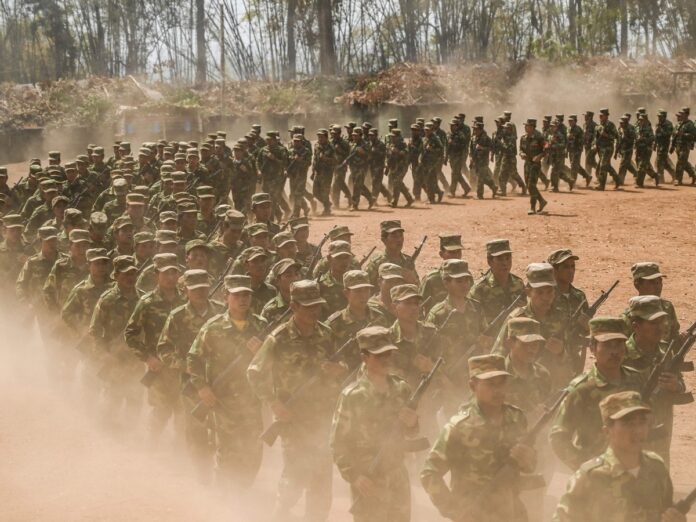Scattered across the lush hills of the Tanintharyi region in southern Myanmar, rebel fighters manning checkpoints check vehicles passing through. The rebels are waging a battle against the Myanmar military, which has intensified since the 2021 coup. But what makes these rebels special is their faith. Actually they are members of “Muslim Company”. They have become part of the Karen National Union (KNU), a major group fighting for democracy in Myanmar. This group already includes people of Christian and Buddhist religions.
company leadership
The Muslim Company is officially known as the 3rd Company of the KNU's Brigade 4, Al-Jazeera reported. The company consists of 130 soldiers, who are part of thousands of rebels fighting to topple Myanmar's military government. The company's headquarters is situated amidst forest covered hills. Company leader Mohammed Ishar, 47, said, “In some areas ethnic groups are fighting for their states, but in Tanintharyi no one group dominates. The army's oppression affects all communities. As long as the army is in power Muslims and all other communities will continue to be persecuted.”
Cultural identity of Muslim company
Muslim Company soldiers' uniforms bear the KNU insignia, but their backpacks also bear a star and crescent badge, symbolizing their ancestors' association with the All Burma Muslim Liberation Army (ABMLA). Additionally, Muslim traditions are also alive in the company's main camp, such as wearing hijab, long traditional dresses and performing namaz. During the holy month of Ramadan, the company's fighters observe fasts and offer regular prayers.
Mixture of history and struggle
The roots of Myanmar's Muslims are said to be quite diverse. These include the Rohingya, Muslims of Indian and Chinese heritage, as well as Muslims who are descendants of Arab, Persian and Indian traders. In the Tanintharyi area, where the Muslim Company is based, there are many Muslims known as 'Pashu', who are Burmese Malays.
Muslims have been portrayed as a threat by the Myanmar military, resulting in them facing religious persecution and denial of citizenship. But in Karen areas, peaceful coexistence has been observed between Muslims and other communities. According to Myanmar scholar Ashley South, “An important feature of this revolution is that it has included groups that were previously excluded from Myanmar politics. The revolution has become a symbol of diversity and inclusivity.”
Muslims opposed the army
The Muslims who resisted the military and then forced their way into the Third Company after it overthrew Myanmar's elected government three years ago are not the first to rise up against repression. In August 1983, a small group of refugees fleeing anti-Muslim riots in Maulmein (now called Maulmaine) in Lower Burma formed the Kawtholei Muslim Liberation Front (KMLF) in KNU-held territory. The KNU trained about 200 KMLF fighters, but disputes between Sunni and Shia leaders eventually divided the group.
In 1985, some KMLF fighters moved south to Tanintharyi, where they founded the ABMLA. After decades of sporadic skirmishes with the army, they officially became the 3rd Company, colloquially known as the “Muslim Company”. According to an administrator associated with the group since 1987, this was around 2015, when KNU's ceasefire with the army expired. The administrator said that recent military atrocities in Myanmar have devastated families, with the Myanmar military now becoming a curse not only for Muslims and ethnic minorities but for the majority of the population.

